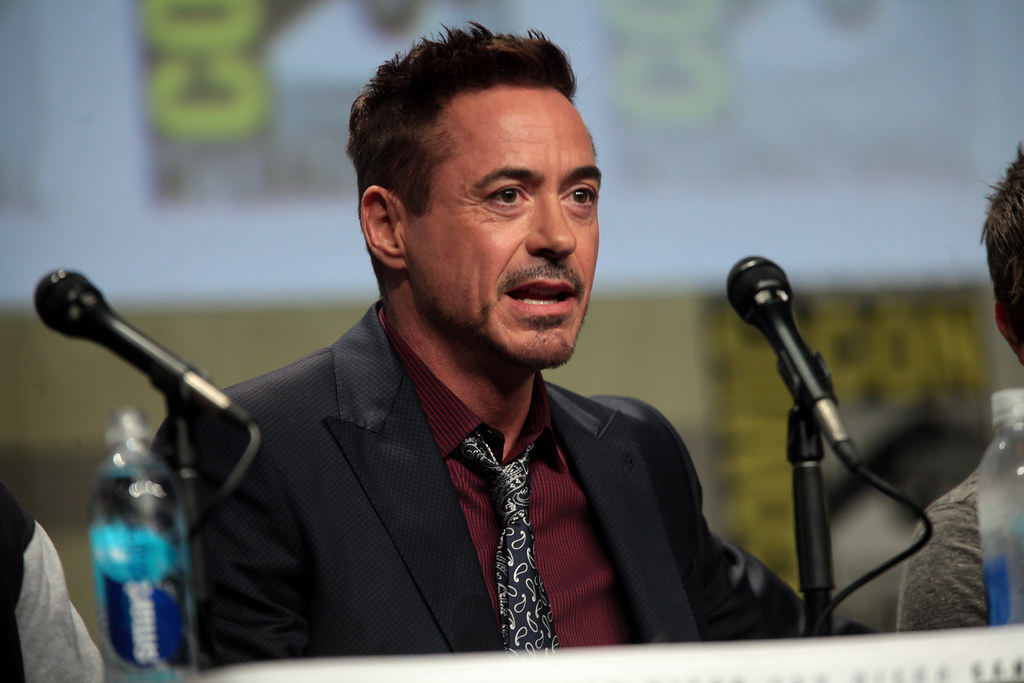Table Of Contents
The rapid evolution of artificial intelligence (AI) in recent years has sparked numerous debates across industries, particularly in entertainment, where AI’s capabilities are raising alarm among actors and creators. Robert Downey Jr., famously known for his portrayal of Iron Man in the Marvel Cinematic Universe, has joined the growing list of artists expressing concerns over the use of AI to replicate their likenesses without consent. In a recent appearance on the “On With Kara Swisher” podcast, Downey Jr. made headlines by declaring his intention to sue any party that attempts to digitally recreate his image through AI, even after his death.
Downey Jr.’s warning comes amid wider discussions about the rights of actors and the implications of AI in creative fields. While AI technologies have opened new opportunities for filmmakers and content creators to push boundaries, they also introduce ethical dilemmas around intellectual property and the exploitation of likenesses without consent. Downey Jr.’s proactive stance highlights the urgency of addressing these challenges before they become systemic issues in Hollywood.
A Firm Stance Against AI Exploitation
During the podcast, Downey Jr. expressed his unwavering commitment to protecting his legacy and image from being exploited by AI technologies. He stated that if any company or individual attempts to use AI to replicate his likeness, they would face immediate legal action. The actor humorously added that his legal team would remain “very active” in enforcing this stance even after his passing, ensuring that his image and contributions to the industry are not misused.
Downey Jr. is not alone in his concerns. The Screen Actors Guild – American Federation of Television and Radio Artists (SAG-AFTRA) has been actively addressing the potential misuse of AI in the industry. In fact, last year, after a prolonged strike, the union successfully negotiated an agreement requiring production companies to obtain actors’ consent before using AI to replicate their images. This agreement represents a significant step toward protecting performers’ rights, but as Downey Jr. pointed out, such measures may not be enough to fully safeguard actors against future exploitation.
The Marvel Connection and Broader Implications
Interestingly, Robert Downey Jr. expressed confidence in Marvel Studios, the franchise that catapulted him to global fame as Iron Man. He noted that he does not fear the current leadership at Marvel misusing his character’s likeness, as he trusts the ethical standards of those currently in charge. However, he acknowledged the inevitability of leadership changes over time, which is why he feels it’s crucial to take a firm legal stance now.
This concern resonates with broader industry anxieties about the future of AI in Hollywood. As AI continues to advance, the prospect of digitally recreating actors long after they’ve retired or passed away becomes increasingly plausible. In recent years, we’ve already seen AI technologies used to de-age actors in films, create digital doubles for complex scenes, and even resurrect deceased actors for new projects. While these advancements are impressive, they raise ethical questions about consent, compensation, and the preservation of artistic integrity.
AI in Entertainment: The Road Ahead
As AI continues to disrupt the entertainment industry, the need for clear regulations and ethical guidelines becomes ever more pressing. The rise of deepfake technology and AI-generated content has blurred the lines between reality and fiction, creating new challenges for actors, filmmakers, and legal experts alike. Downey Jr.’s stance serves as a reminder that technological innovation must go hand in hand with legal and ethical considerations.
The recent SAG-AFTRA strike and the resulting agreement on AI usage reflect a growing awareness of these issues within the industry. However, the rapid pace of AI development means that existing regulations may quickly become outdated. As Downey Jr. pointed out, it is essential for actors and creators to remain vigilant and proactive in ensuring that their rights are protected in an increasingly digital landscape.
Robert Downey Jr.’s bold declaration against the unauthorized use of AI to replicate his likeness has sparked important conversations about the future of AI in Hollywood and beyond. His proactive stance underscores the need for stronger legal frameworks and ethical guidelines to protect artists from potential exploitation in the digital age. As AI continues to evolve, it is crucial for industry leaders, legal experts, and creators to collaborate in establishing clear boundaries that preserve artistic integrity while embracing innovation.
The entertainment industry is at a crossroads, with AI offering new creative possibilities but also posing significant challenges. Robert Downey Jr.’s firm stance on protecting his image and legacy is a forward-thinking move that could set a precedent for future discussions on AI rights in Hollywood. For actors, creators, and technologists alike, his message is clear: innovation must not come at the expense of ethical standards and personal rights.


